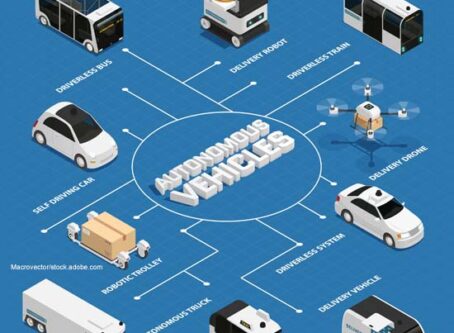OOIDA’s Pugh tells lawmakers how they can help truckers
If lawmakers want to thank truck drivers for their work that has kept America moving through a national crisis, they need to avoid legislation that could put many small motor carriers out of business. That was OOIDA Executive Vice President Lewie Pugh’s message as he testified to the House Transportation and Infrastructure Committee on Thursday, Feb. 4.
Pugh joined five other witnesses to testify in a four-hour virtual hearing titled “Protecting Transportation Workers and Passengers from COVID: Gaps in Safety, Lessons Learned, and Next Steps.”
Pugh focused on four main ways lawmakers can help truckers get through this national emergency.
- Add more truck parking by voting for the Truck Parking Safety Improvement Act.
- Avoid legislation that would be harmful to truckers, such as increasing their minimum insurance requirements by 167% and mandating speed limiters on trucks.
- Repeal the overtime exemption for employee drivers in the Fair Labor Standards Act.
- Reinstate the per diem for employee drivers.
“You can take steps to help, but you must also avoid unnecessary damage,” Pugh said. “Truckers have earned your respect by now. Show them some real appreciation. Twitter statements are nice, but it doesn’t put food on the table.
“Drivers still worry about getting the vaccine while they continue to work. Finding a decent meal is still tough. Many are concerned about the future of their business, an uncertain freight market, and new regulations. Some even fear that their business will survive COVID only to be destroyed by Congress.”
As part of his oral testimony, Pugh highlighted the hardships truckers have faced since COVID-19 crisis began.
Pugh relayed to lawmakers that truckers had difficulties finding places to use the restroom and couldn’t get masks, hand sanitizer and bottled water even though they may have been the ones delivering those products to the rest of America. He also let them know that truckers continue to have difficulties finding a place to sit down and have a hot meal.
Pugh lauded the Federal Highway Administration for allowing states to permit food trucks at rest areas but called out some states for not allowing it.
“Unfortunately, many states, just like here in Missouri, wouldn’t allow food trucks in rest areas,” Pugh said. “Think about that. Truckers couldn’t buy food at a truck stop. They couldn’t buy food at a restaurant, yet states had the nerve to deny them a hot meal even at a rest area. Here at OOIDA, we weren’t even allowed to give free food at a rest area. To me, that’s a real shame.”
Pugh offered many suggestions on how lawmakers could have helped, such as suspending the Heavy Vehicle Use Tax and the Unified Carrier Registration payments and by reinstating the per diem for employee drivers.
Those things didn’t happen, but Pugh pointed out that members of the House last summer did vote for an amendment that would have increased motor carriers’ minimum insurance requirement from $750,000 to $2 million.
“We were all shocked last year when this committee voted, in the middle of a global catastrophe, to increase federal insurance requirements by $1.25 million,” Pugh said. “Truckers watched in disbelief as members of this panel went from patting them on the back on social media to kicking them while they were down.”
Rep. Brian Babin, R-Texas, took time to thank truckers for their hard work and asked the other members of the committee to make a good-faith effort to help get truckers the resources they need.
“I commend the work that OOIDA has done during the pandemic to fight for the rights of your drivers,” Babin said. “While many Americans, including some in this room, were able to work from home last year, truckers still had to crisscross this nation to pick up and deliver items we all need, including life-saving personal protective equipment and millions of doses of the vaccine.”
Rep. Jeff Van Drew, R-N.J., also took time to celebrate truck drivers.
“These are men and women who work so hard every day breaking their backs to transport the goods and services we need across this country,” he said. “Without them, we would be nowhere. They need to be lauded sometimes and thanked for what they do.”
Broker transparency
Babin also gave Pugh the opportunity to let lawmakers know about OOIDA’s petition for broker transparency, which allows truckers to see what brokers are being paid by the shippers.
Pugh told the committee that this is a regulation that is being skirted by brokers.
“We put a petition to FMCSA that this information could be sent electronically (to truckers),” Pugh said.
Minimum insurance
Rep. Garrett Graves, R-La., asked Pugh about the timing of increasing the minimum insurance requirement during a health and economic crisis.
“I think it would cause lots and lots of harm,” Pugh said. “There are all kinds of studies that show there is no correlation to increasing insurance and safety. Actually, we feel it will have an opposite effect because most carriers … are some of the safest people out there, and you’re going to drive them out of business.
“It’s a very tight profit-margin business … This would have a detrimental effect on small-business carriers and safety on the highway.”
Lack of truck parking
Rep. Mike Bost, R-Ill., who co-sponsored the Trucking Safety Improvement Act, asked Pugh about the lack of safe parking spots available to truck drivers.
Pugh, who worked as a truck driver for more than 20 years and still holds a CDL, provided a personal account of the lack of safe parking.
“Since 2005, the only thing I’ve seen is less parking than there was in 2005,” he said.
“I had to park in places where my truck was hit and in places where it was tried to be broken into. I used to always have a dog with me, but mainly for protection … Government has to get involved.”
Other witnesses
In addition to OOIDA’s vice president, the other witnesses were David Michaels with George Washington University; Sara Nelson, international president of the Association of Flight Attendants; Ismael Rivera, a bus operator for Lynx; William Bahnfleth of Pennsylvania State University; and Joe Buscaino, a Los Angeles city council member.
Rivera spoke up for passenger-carrying commercial motor vehicle drivers.
“The coronavirus has shown the world the true meaning of essential workers,” he said. “We are the ones who people rely upon to survive when everything around us shuts down. Since the pandemic began, transit workers have put their own lives on the line, bravely reporting to work every day, driving riders in our communities to the doctor, the grocery store, and the pharmacy.” LL









